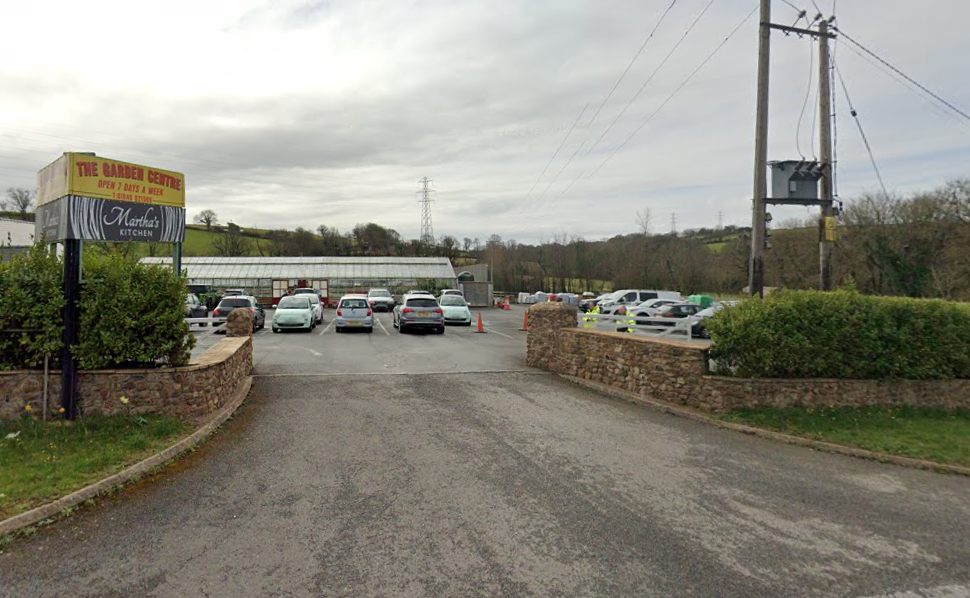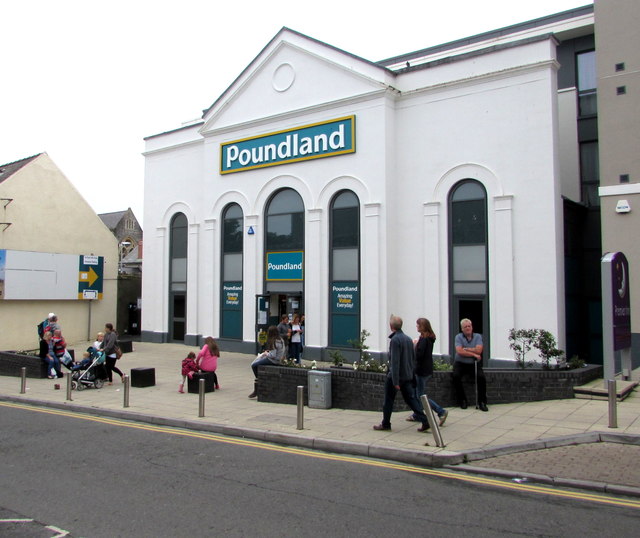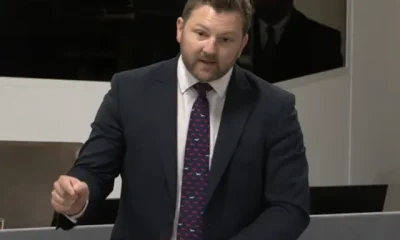Politics
Rough sleeping: millions wasted on fragmented system

‘A WASTE OF MONEY’. That’s how a hard-hitting report from Audit Wales described how local authorities, the Welsh Government, and other public bodies deal with rough-sleeping.
Audit Wales is the body which checks how public money is spent and advises the Welsh Government and other public bodies on how to make sure they get value for money.
The Audit Wales reports says that the public sector spends up to £210m reacting to rough sleeping, rather than preventing it and dealing with its causes.
Audit Wales do not say, however, that spending to tackle rough sleeping is a waste of public money. Instead, Audit Wales says the money is spent on faulty strategies which react to the problem, don’t deal with it proactively, and fail to provide good outcomes for those sleeping rough.
It says the COVID-19 pandemic is an opportunity for public bodies to start addressing weaknesses in partnership working to help tackle rough sleeping.
ROUGH SLEEPING A ‘REVOLVING DOOR’
Audit Wales’ report found, although many public bodies work with people sleeping rough, services were not always joined up and helping people when they needed it.
It found many examples of people being assisted off the streets and into temporary accommodation. Once in temporary accommodation, they did not, however, get the support they needed to address the root causes of their homelessness and often ended up back where they started.
The true extent of people sleeping rough in Wales each year is unknown.
Drawing on information from specialist charities who work with people sleeping rough, there are roughly 3,000 incidences of rough sleeping every year.
The most recent data published by the Welsh Government show the number of people sleeping rough was continuing to rise before the pandemic, increasing by 17% between November 2018 and November 2019.
Audit Wales’ research shows that people sleeping rough in later life have often experienced domestic or sexual abuse, substance misuse, been abused at home, had difficulties in school or lived in poverty from a young age.
To end rough sleeping, solutions need to address both accommodation and support needs and requires many public bodies – including, councils, the Police, health bodies, housing associations, and others – to change how they work and what they do to tackle rough sleeping.
Audit Wales says the key to tackling this problem is for public bodies to deliver a single public service response targeted at people sleeping rough.
To support that step, Audit Wales included in its report a self-reflection tool for public bodies to use to improve how they can jointly address complex needs in the future.
TIME TO ADDRESS THE ROOT CAUSES
Adrian Crompton, the Auditor General for Wales, said: “There has been a real change and emphasis on rough sleeping since the pandemic hit, with public services stepping up to help people off the streets into accommodation.
“Public services now need to capitalise on this work and deliver longer-term solutions to end people sleeping on our streets.
“I believe that for the first time in a generation, eliminating rough sleeping in Wales is a possibility. Our report sets out how we can all work towards this goal.
“Public bodies must not just focus on giving people a roof over their head, it needs all partners to work together to address the root causes of homelessness.
Frances Beecher, CEO of Llamau and Chair of End Youth Homelessness Cymru, who was a member of the Homelessness Action Group, welcomed Audit Wales’ report.
“For too long we have known that the root causes of homelessness stem from traumatic and adverse experiences in childhood.
“It is crucial that we build on the work we have done to support people sleeping rough during the Covid19 pandemic, and invest in integrated services which intervene early to prevent homelessness, rather than waiting until people reach a crisis point in their lives.
“Ending homelessness is everyone’s responsibility and if we all work together, I truly believe we have a huge opportunity to create a Wales without homelessness.”
‘A FRAGMENTED SYSTEM’
Plaid Cymru’s Shadow Minister for Transforming Public Services, Delyth Jewell MS, said: “Homelessness is the predictable consequence of years of cuts to social security, a failure to build social housing, and the continued refusal of the Welsh Government to make the necessary legislative changes such as ending priority need to ensure everyone is entitled to support when they present as homeless.
“I welcome the report from the Auditor General for Wales, which highlights the long-standing weaknesses that come from a fragmented system. However, the pandemic has revealed that when there is a will, there is a way to end homelessness. The Welsh Government’s lack of ability to effectively tackle rough sleeping before the pandemic must now be seriously called into question – they can no longer blame their lack of action on austerity, but an utter lack of will to deal with the problem in hand.
“Plaid Cymru believes that no society can legitimately call itself civilised if a person must sleep on the street. Above all, tackling this problem is a question of political will.”
FINDINGS ARE ‘A SCANDAL’
Mark Isherwood MS – the Conservative’s Shadow Minister for Local Government and Housing – said: “This is nothing short of a scandal.
“In the words of the report’s authors, some £209 million is wasted annually by the public sector reacting to, rather than preventing, rough sleeping. The report also found that services were not always joined up and people were not being helped when they needed it.
“Cited, too, were ‘many examples’ of a ‘revolving door’ for service users who were assisted off the streets and into temporary accommodation, but without the necessary support to address the root causes of their homelessness, and who often ended up back where they started.
“The crisis caused by the Covid-19 pandemic was an opportunity for public bodies to start addressing weaknesses in partnership working to help tackle rough sleeping.
“It is now crucial that the Welsh Government publishes what it will do to help homeless people once the current lockdown is eased.”
GOVERNMENT MUST BUILD ON COVID EXPERIENCE
The Chair of the Senedd’s Equality, Local Government and Communities, John Griffiths MS, commented: “This Committee has prioritised homelessness and rough sleeping. We have taken evidence and produced detailed reports with recommendations to tackle the issues involved.
“Only last week, we heard about the live challenges facing individuals experiencing or at risk of homelessness, including those sleeping rough, and the pressures on those services that provide support. We also heard about the monumental effort being made by all partners, within local authorities and the third sector to get people off the streets at the height of the pandemic. What has been achieved is significant and impressive, and we hope that this can be built upon to meet the Welsh Government’s aim of making homelessness rare, brief and unrepeated.
“I welcome the Auditor General’s report and echo his call for public services to capitalise on their response to the COVID-19 crisis through a step-change in approach, shifting resources to focus on prevention.
“Looming economic challenges that could otherwise drive more homelessness and rough sleeping make this all the more important. We will continue to hold the Welsh Government to account on this important issue in the coming months, and this report will help inform our scrutiny.”
At the outbreak of the COVID-19 pandemic, the Welsh Government and councils moved quickly to provide accommodation to rough sleepers and those in unsuitable accommodation.
Housing Minister Julie James MS said: “Getting over 800 people off the streets or away from unsuitable accommodation has not been easy but by working together we have made a big difference to the lives of these people.
“This does not, however, mean we have resolved homelessness in Wales. We have achieved a reprieve, but it remains our goal to end homelessness and we will not see people forced back onto the streets.”
THE PROBLEM WITH NIMBYS
Even with the best will in the world, local authorities, the Welsh Government and other bodies face a massive struggle to end the scourge of homelessness and rough sleeping.
In 2014, Carmarthenshire’s Planning Committee rejected plans to convert a residence n Carmarthen to house homeless armed forces veterans.
The Planning Inspectorate overturned the rejection in 2015. However, the charity behind the application decided not to proceed with the plan because of continuing hostility from those determined to house the homeless anywhere but near their properties.
During the COVID-19 pandemic, locals have complained about the use of the Silverdale Lodge, Johnston, as temporary accommodation for those made homeless by the pandemic or for rough sleepers placed there as part of controls for COVID-19’s spread.
Similar complaints have been made about a property in Fishguard which is also being used as temporary accommodation for the homeless during the COVID pandemic.
As always, the local rumour mill churns about properties being used as bail hostels or halfway houses.
While most people regard homelessness and rough sleeping as preventable tragedies, it appears that a large majority want them prevented as far away from them as possible.
Business
Cosheston Garden Centre expansion approved by planners

PLANS to upgrade a garden centre on the main road to Pembroke Dock have been given the go-ahead.
In an application to Pembrokeshire County Council, submitted through agent Hayston Developments & Planning Ltd, Mr and Mrs Wainwright sought permission for upgrade of a garden centre with a relocated garden centre sales area, additional parking and the creation of ornamental pond and wildlife enhancement area (partly in retrospect) at Cosheston Garden Centre, Slade Cross, Cosheston.
The application was a resubmission of a previously refused scheme, with the retrospective aspects of the works starting in late 2023.
The site has a long planning history, and started life as a market garden and turkey farm in the 1980s, and then a number of applications for new development.
A supporting statement says the previously-refused application included setting aside a significant part of the proposed new building for general retail sales as a linked farm shop and local food store/deli in addition to a coffee bar.
It was refused on the grounds of “the proposal was deemed to be contrary to retail policies and the likely impact of that use on the vitality and viability of nearby centres,” the statement said, adding: “Secondly, in noting that vehicular access was off the A 477 (T) the Welsh Government raised an objection on the grounds that insufficient transport information had been submitted in respect of traffic generation and highway safety.”
It said the new scheme seeks to address those issues; the development largely the same with the proposed new garden centre building now only proposed to accommodate a relocated garden centre display sales area rather than a new retail sales area with other goods, but retaining a small ancillary coffee bar area.
“Additional information, in the form of an independent and comprehensive Transport Statement, has now been submitted to address the objection raised by the Welsh Government in respect of highway safety,” the statement said.
It conceded: “It is acknowledged that both the creation of the ornamental pond and ‘overspill’ parking area do not have the benefit of planning permission and therefore these aspects of the application are ‘in retrospect’ and seeks their retention.”
It finished: “Essentially, this proposal seeks to upgrade existing facilities and offer to the general public. It includes the ‘relocation’ of a previously existing retail display area which had been ‘lost’ to the ornamental pond/amenity area and to provide this use within the proposed new building and moves away from the previously proposed ‘farm shop’ idea which we thought had merit.
“This revised proposal therefore involves an ‘upgrading’ rather than an ‘expansion’ of the existing garden centre use.”
An officer report recommending approval said that, while the scheme would still be in the countryside rather than within a settlement boundary, the range of goods sold would be “typical of the type of goods sold in a garden centre and which could be sold elsewhere within the garden centre itself,” adding: “Unlike the recent planning application refused permission it is not intended to sell delicatessen goods, dried food, fruit and vegetables, pet products and gifts.”
It added that a transport statement provided had been reviewed by the Welsh Government, which did not object on highway grounds subject to conditions on any decision notice relating to visibility splays and parking facilities.
The application was conditionally approved.
Business
Tenby Poundland site could become retro gaming lounge

TENBY’S former Poundland and Royal Playhouse cinema could become a retro computer gaming lounge, plans submitted to the national park hope.
Following a takeover by investment firm Gordon Brothers, Poundland shut 57 stores earlier this year, including Tenby.
Prior to being a Poundland, the site was the Royal Playhouse, which had its final curtain in early 2011 after running for nearly a century.
The cinema had been doing poor business after the opening of a multiplex in Carmarthen; in late 2010 the opening night of the-then latest Harry Potter blockbuster only attracted an audience of 12 people.
In an application to Pembrokeshire Coast National Park, Matthew Mileson of Newport-based MB Games Ltd, seeks permission for a ‘CONTINUE? Retro Gaming Lounge’ sign on the front of the former Gatehouse (Playhouse) Cinema, White Lion Street, most recently used as a Poundland store.
The signage plans form part of a wider scheme for a retro gaming facility at the former cinema site, which has a Grade-II-listed front facade, a supporting statement through agent Asbri Planning Ltd says.
“The subject site is located within the settlement of Tenby along White Lion St. The site was formerly the Gatehouse Cinema and currently operates as a Poundland discount store, which closed on October 18.”
It adds: “This application forms part of a wider scheme for the change of use to the former Gatehouse Cinema. Advertisement consent is sought for a non-illuminated aluminium composite folded panel that will be bolted onto the front façade of the proposed building, in replacement of the existing signage (Poundland).”
It stresses: “It is considered that the proposed advertisement will not have a detrimental impact on the quality of the environment, along with being within a proportionate scale of the building. It is considered that the proposed signage will reflect site function.
“Furthermore, due to the sympathetic scale and design of the sign itself, it is considered that the proposal will not result in any adverse visual amenity impacts.
“The proposal is reduced in sized compared to the existing Poundland advertisement. The sign will not be illuminated. Given the above it is considered that such proportionate signate in association with the proposed retro gaming lounge is acceptable and does not adversely affect visual amenity.”
An application for a retro gaming lounge by MB Games Ltd was recently given the go-ahead in Swansea.
Business
Llandeloy cottage crochet plans given the green light

A CALL to change the use of a Pembrokeshire farm holiday cottage to a crochet workshop has been given the go-ahead by Pembrokeshire planners.
In an application to Pembrokeshire County Council, Mr and Mrs Evans of Lochmeyler Farm, Llandeloy, through agent Harries Planning Design Management, sought permission for a change of use of a self-catered cottage to a crochet workshop.
A supporting statement says the application, one of a number of historic farm diversification schemes on site “seeks to continue to evolve with current market demands,” the cottage proposed for the change of use once a former outbuilding that was originally converted in 1992 into “a well-established holiday let”.
It added: “Made by Margo is a well-regarded local business founded by Margo Evans, a passionate lifelong crafter who began knitting at a young age. Her company specialises in creating handcrafted, contemporary crochet products using high-quality natural materials.
“Accordingly, Margo is a highly sought-after teacher known for her popular crochet classes. This proposal is motivated by a recognised need for a permanent space for the business, as to date the applicant has needed to use community halls or similar spaces to accommodate clients.
“Thus, the proposed change of use will secure a permanent space for these workshops and will future proof the business against the lack of availability of public spaces.
“Other alternatives have been considered with the cottage being the most viable option, particularly as demand has waned for holiday cottage post Covid-19. The holiday cottage, whilst once popular, is no longer in high demand, with visitors requiring more modern amenities and larger spaces which without significant investment, this holiday cottage is unable to provide.
“Consequently, the cottage’s change of use will diversify the farm’s revenue, while simultaneously providing a permanent base for a small rural business. While the primary customer base is local, the space may also help attract seasonal tourism and broaden the business’s appeal.”
It says the operation would be on a small scale, with a maximum of six people per class and a three day per-week schedule.
An officer report, recommending approval, said: “The provision of a workshop would have both social and environmental benefits for the applicant and local community through the provision of business and income generated from the operation.
“With regard to environmental impacts, positive environmental impacts would be achieved through the re-use of the building. Whilst the proposed location is in the open countryside, which is not a sustainable location, the proposed operation of the business is low scale. It is considered that the number of trips would be of low frequency when compared to the potential number of trips that are generated from tourism.”
The application was conditionally approved.
-

 Crime5 days ago
Crime5 days agoPhillips found guilty of raping baby in “worst case” judge has ever dealt with
-

 Crime4 days ago
Crime4 days agoKilgetty scaffolder sentenced after driving with cocaine and in system
-

 Crime4 days ago
Crime4 days agoHousing site director sentenced after failing to provide breath sample following crash
-

 Crime4 days ago
Crime4 days agoMotorist banned for three years after driving with cannabis in system
-

 Education3 days ago
Education3 days agoTeaching assistant struck off after asking pupil for photos of her body
-

 Crime1 day ago
Crime1 day agoMan spared jail after baseball bat incident in Milford Haven
-

 News6 days ago
News6 days agoJury retires tomorrow in harrowing Baby C rape trial
-

 Crime5 days ago
Crime5 days agoMilford Haven pensioner denies exposure charges



























